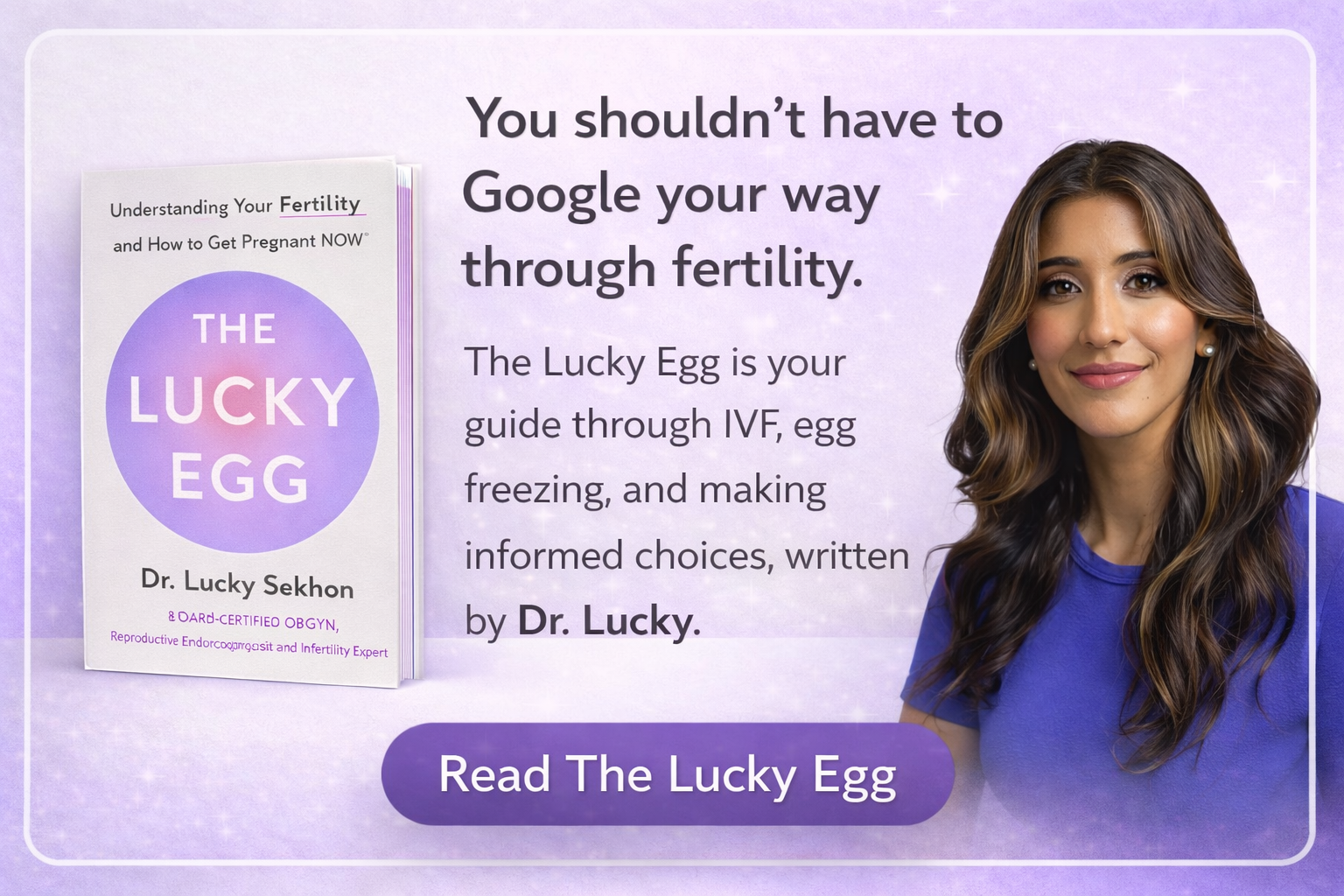How to Ask Your Employer for Egg Freezing Benefits (With a Script You Can Use)
Fertility preservation, like egg freezing, has become a critical benefit for many employees who want flexibility in planning their future. Yet, not every workplace has caught up. The good news? Many HR teams are open to expanding benefits when employees speak up.
I’m Dr. Lucky Sekhon, a double board-certified Reproductive Endocrinologist and Infertility (REI) specialist practicing in New York City. Through this blog, my Instagram, and my book The Lucky Egg: Understanding Your Fertility and How to Get Pregnant Now, my goal is simple: to cut through the confusion and empower you with science-backed, practical fertility knowledge. Whether it’s decoding lab results, unpacking social media myths, or sharing what I see every day in my clinic, I want you to feel informed, supported, and confident as you navigate your reproductive journey.
If you’ve ever wondered how to approach your company about covering egg freezing, you don’t need to start from scratch. I’ve put together a simple, professional email script you can use to advocate for yourself (and your colleagues).
This script helps you:
- Highlight the value to employees: Fertility benefits support retention, reduce stress, and show your company cares about long-term wellbeing.
- Showcase industry trends: More leading employers are offering fertility coverage to attract and retain top talent.
- Keep the tone professional yet persuasive: It makes the request clear while also framing it as a win-win for both employees and the company.
Dear <insert head of HR name here>,
I appreciate that <insert company name> has invested in advanced fertility benefits like IVF, and that the company is monitoring the landscape around egg freezing. I’d like to share why elective egg freezing is not just a “nice to have” but a critical benefit for so many.
1. Egg freezing is preventive, not elective.
Labeling it “elective” implies it’s optional in the same way cosmetic surgery might be. But the reality is that fertility declines rapidly after age 35 due to egg quality, not lifestyle choices. Egg freezing is the only medical option available to proactively preserve reproductive potential before this irreversible decline. IVF, while already covered, is far less effective without eggs banked at a younger age. Offering IVF but excluding egg freezing is like covering heart surgery but not statins to prevent the need for it.
2. Cost-effectiveness.
The average cost of an egg freezing cycle in the U.S. is ~$10,000–$20,000. Compare this to IVF, which costs $22,000–$25,000 per cycle, and often multiple cycles are needed if eggs are of lower quality due to age. Covering egg freezing early can reduce the number of costly IVF cycles later.
3. Equity and inclusivity.
<Company name>’s female workforce is disproportionately impacted by fertility decline. Unlike men, who continuously produce sperm throughout life, women are born with a finite egg supply that diminishes over time. Without coverage for fertility preservation, employees who delay parenthood for career growth, a reality for many, are penalized biologically and financially.
4. Recruitment & retention.
While fewer than 20% of U.S. companies offer egg freezing benefits today, that number is rapidly rising, particularly among competitive employers in tech, finance, law, and healthcare. A recent FertilityIQ survey found that 68% of employees who had egg freezing benefits reported feeling more loyal to their employer, and 32% stayed longer at their company because of it. Offering this benefit signals that <company name> values women’s career and family goals equally.
5. Employee wellbeing.
The stress of fertility decline is significant. Studies show fertility-related distress is comparable to that of patients with cancer. Providing access to egg freezing not only supports reproductive autonomy but also improves mental health by reducing the anxiety of “running out of time.”
I urge <company name> to reconsider the framing of egg freezing as “elective” and to view it instead as a proactive, equitable, and cost-effective extension of the fertility benefits you already offer. Covering IVF without egg freezing is only addressing the problem after it has become harder to solve.
Thank you for considering this perspective, and I’d be happy to share additional resources on cost-effectiveness, employee retention, and health outcomes if helpful.
Best,
<Sign your name>Remember, asking for better benefits isn’t just about you, it’s about helping set a precedent that can benefit countless others at your workplace. If you’ve been waiting for the right words, this script is your starting point.
If you found this helpful and want more science-backed, practical fertility guidance, make sure to follow me on Instagram @lucky.sekhon where I share daily tips, education, and behind-the-scenes insights from my clinic. And don’t forget to subscribe to my monthly fertility newsletter—it’s the best way to stay updated on the latest research, treatment options, and strategies to feel empowered on your journey.


